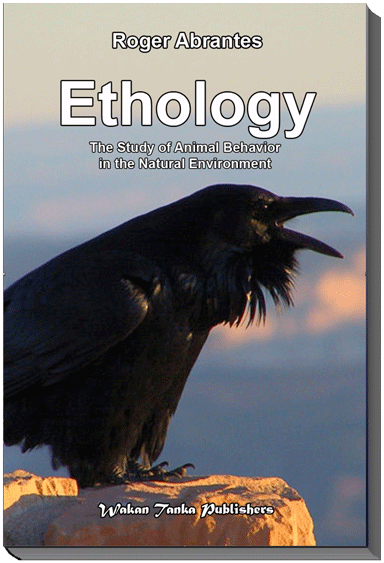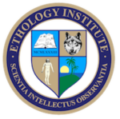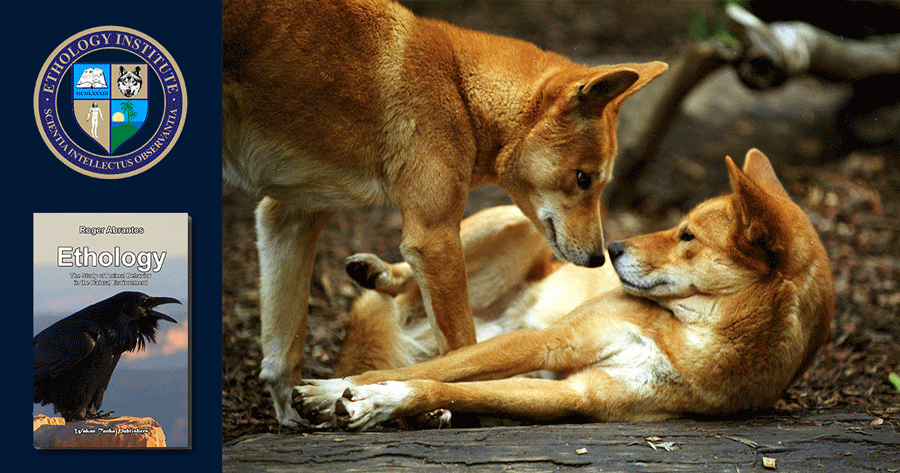Course Description
Ethology is the study of animal behavior in its natural environment. This is one of the most important and fundamental courses in your curriculum. Without a reliable knowledge about animal behavior, we can’t expect to create a gratifying relationship with our pets or the animals we train. Some of this course’s content is at an advanced level and requires increased dedication on your part. The course’s final test focuses on the most important points—so don’t worry if a few questions seem harder to understand. You will appreciate them better once you continue your studies. You should, preferably, have taken Evolution before you enroll in ethology.
This course has ten lessons. They follow the chapters in the textbook (see below).
Watch the movie “Animal Behavior Crash Course” by Hank Green. The movie is an appetizer and an introduction to the current course, to give you a general idea of animal behavior. We will review the terms, concepts, and much more in detail in this course’s ten lessons.
For the present purpose, watch the movie and enjoy embarking on this journey into the discovery of animal behavior.
Course Level
Intermediate to advanced.
Course Textbook
“Ethology—the study of animal behavior in the natural environment”
by Roger Abrantes, Ph.D. in Evolutionary Biology and Ethology.
Roger Abrantes wrote “Ethology—the study of animal behavior in the natural environment” for his students as their primary textbook on this all-important topic. The book is a must for everyone seriously interested in understanding animal behavior—and the best possible introduction to this fascinating subject matter. You can take this course as part of a program granting a diploma or as a single course.
“Ethology” is an appealing and beautifully illustrated book. It addresses its questions to the point with sound, scientific explanations. It is not cluttered with footnotes. The author chose to keep all references to an extensive list at the end of the book. You read it as fluently as a novel—its narrative is compelling. The online version, which you get when you enroll in this course, has the advantage of giving you all updates at no extra course. Once you enroll in this course, you can return anytime you like, re-read the book or check the updates. If you like, you can also attempt to achieve a better test score.
Book contents (the lessons in this course correspond to the chapters in the book)
Chapter 1 Ethology—history and principles.
Chapter 2 Genetics and behavior.
Chapter 3 Evolutionary strategies.
Chapter 4 Sexual behavior.
Chapter 5 Instinct and learning.
Chapter 6 Communication.
Chapter 7 Social behavior.
Chapter 8 Agonistic behavior.
Chapter 9 Animal economics and intelligence.
Chapter 10 Evolutionary perspectives.

We give you the book in a beautiful flip-page format in lesson 10 for your convenience and enjoyment. The book is an optional choice. Please note that the book contains some extra text and illustrations not transcribed in this course’s various lessons and chapters. You need not read the book to complete your course, though you may want to read it to get the additional material and enjoy the beautiful classic book format we have created.
Supplementary Literature
Although not mandatory, we recommend that you supplement your readings with:
- Darwin, C. (1859) On the origin of species by means of natural selection, or the preservation of favoured races in the struggle for life. London: John Murray. 1st ed.
- Dawkins, R. (2006) The Selfish Gene. Oxford University Press, USA.
- McFarland, D. (1982) The Oxford Companion to Animal Behaviour. Oxford University Press, Oxford.
- McFarland, D. (1998) Animal Behaviour. Benjamin Cummings. 3rd ed.
Online Studying and Tutoring
Watch the movie(s) and read the book(s). Join the course forum where you can read our tutors’ answers to questions previously posed by your colleagues. If you have a new question, do not hesitate in posting it.
The course forum is solely for academic questions. For administrative matters or difficulties accessing the functionality of the site, please submit a ticket.
Once you’re ready for it, take the quizzes. You may take a quiz as many times as you like. We recommend you re-take quizzes once a year as a self-imposed quality control.

